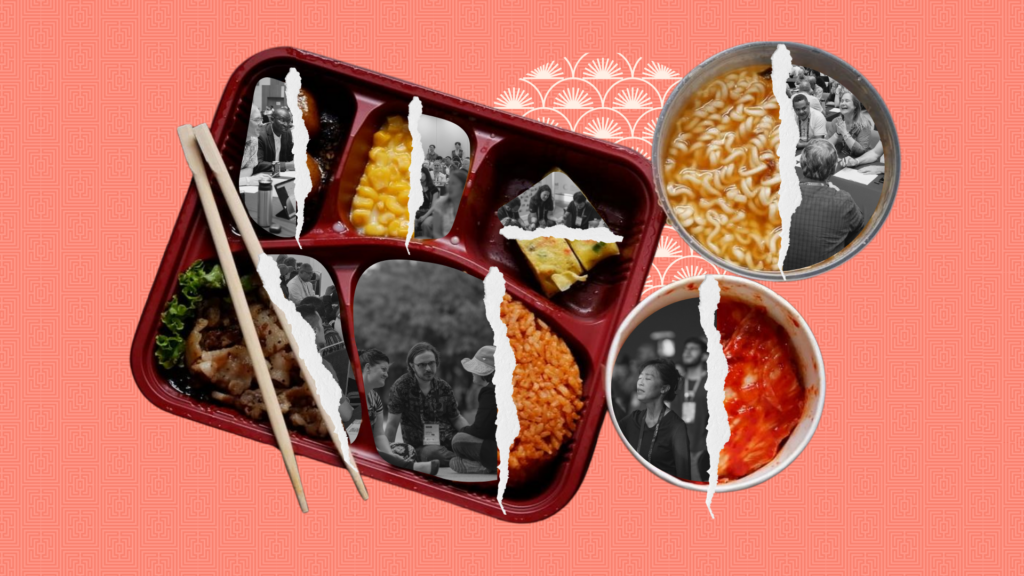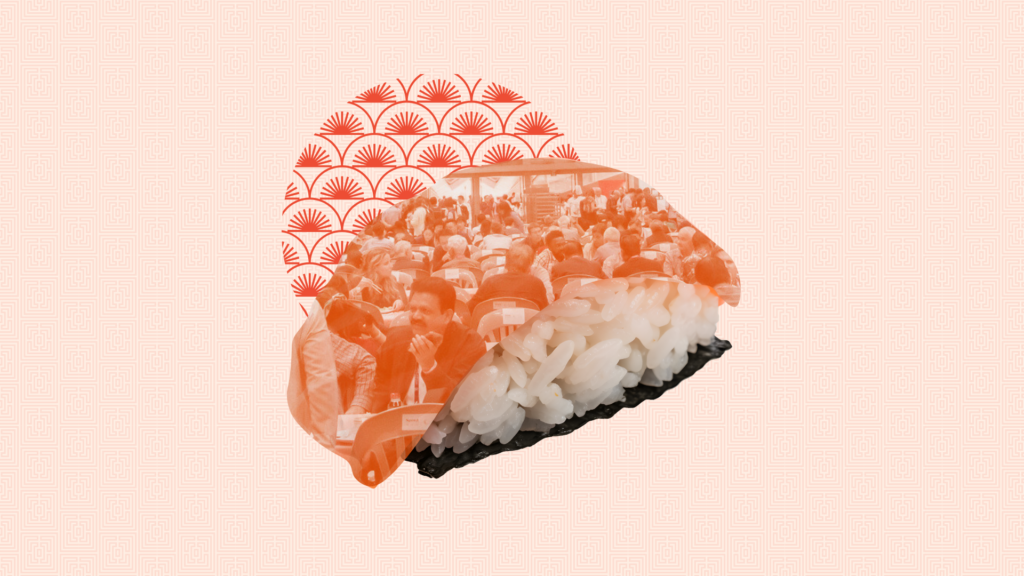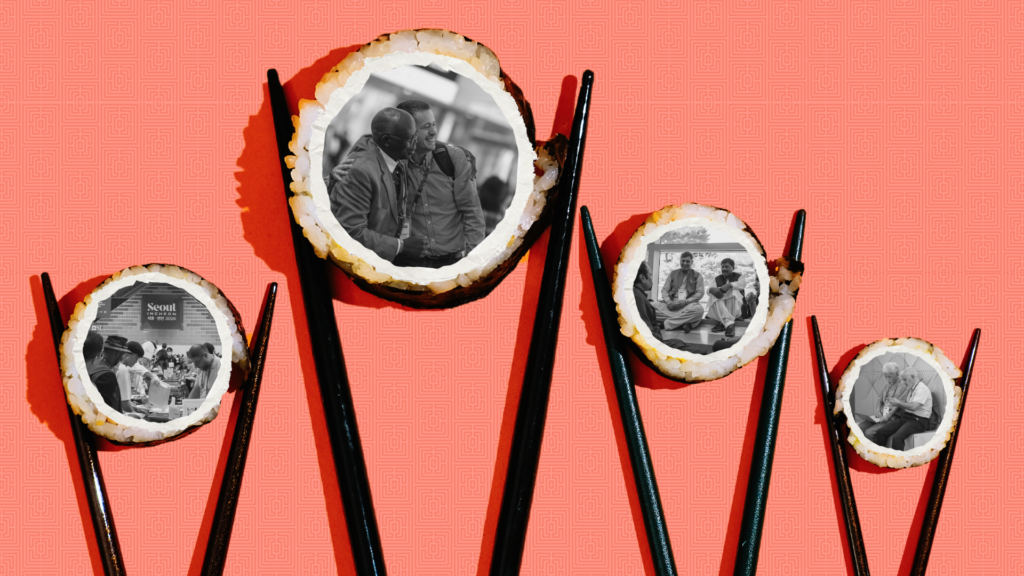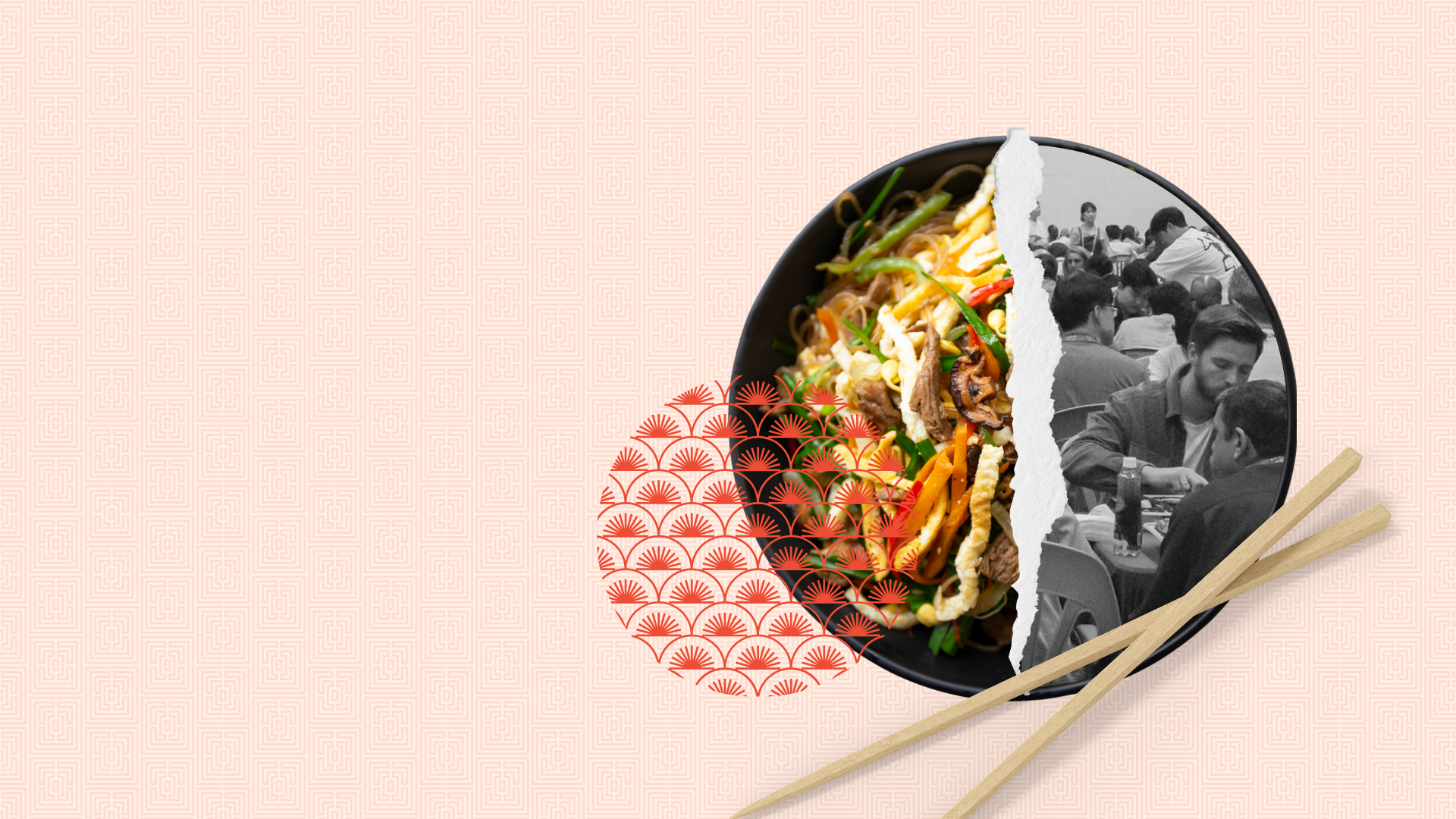One key refreshing highlight at the Fourth Lausanne Congress in Seoul-Incheon has been the wonderful hospitality and food provided by our generous Korean hosts. At arguably one of the most strategic gatherings of the global church, jellyfish salad, kimchi, soybean paste soup and fluffy white rice with soup have been on the participants’ minds, a tasty break between the sessions at the Congress.
The Bible has much to say about food and God’s mission.
The Bible has much to say about food and God’s mission. It shows clearly that a lot happens when people have conversations around food. In the Old Testament, God’s first invitation to humans was to freely eat. When Abraham received his strange guests, the ensuing life-changing conversations of Sarah’s unusual pregnancy and the destruction of Sodom and Gomorrah took place around curds, milk, and calf (Genesis 18). In Isaiah, couched in language of food, we are invited to a more soul-satisfying experience in God (Isaiah 55). YHWH promises to satisfy us with meals (Isaiah 58).

In the New Testament, meals are a central rallying point. No figure in the Bible is more associated with food than its central character, Jesus. In response to a catering crisis, his first miracle was changing water into wine (John 2). He saved the newlywed couple’s day by fermenting four hundred and fifty litres of water into the best wine the guests had ever had.
Throughout the New Testament Jesus spends a great amount of time at dinner parties—winning for him a reputation as a drunkard, glutton, and friend of the ’wrong sort of people’ (Matthew 11:19). Though the first two accusations were false, the third could be determined guilty as charged.
One of the major miracles associated with Jesus’ ministry is the feeding of the 5,000 with five loaves of bread and two fish. Showing deep compassion, teamwork, tact, member care, creation care, and divine prowess, Jesus satisfied the physical hunger of the 5,000.
Before his death on the cross, Jesus had the last supper with his disciples—a meal we continue to share together today in remembrance of the Lord and his work on the cross. After the resurrection, Jesus exercised his culinary skills to prepare breakfast as an act of love and reinstatement for Peter (John 21). With bread and fish, Jesus reconnected with his disciples. What a picture we have of heaven—a great banquet and feasting. In effect, the Bible message is sandwiched by meals from beginning to end.

Similarly, Congress participants have had the opportunity to break bread together thanks to the Songdo Convensia catering team. The team has catered for numerous conventions, but generally those conventions have lasted between one and two days—this is the first time they have catered for a week-long event. Choosing a menu for 5,000 plus people from over 200 countries is no small feat. It took one and a half months of deliberation, much discussion, numerous tastings, and plenty of fine tuning for the chefs to decide the final menu for each meal of the Congress.
Lausanne 4 has provided the opportunity for participants to be introduced to Korean culture, including Korea’s increasingly well-known and popular cuisine. The chefs made the decision to leave out very spicy and highly seasoned Korean food in consideration of the diverse set of palates they were catering to. Most of the food is prepared on site. When deciding the number of dishes to serve for each meal, the catering team took into consideration how long it would take people to go through the food line.
With food comes cultural dynamics. One such dynamic here is the use of chopsticks. Using chopsticks is a novel experience for many at the Congress. Some chose to waive the option of using a fork to enjoy this new challenge.

Participants have described the meals as ‘delicious and unique’ and ‘wonderful’. One participant said he appreciated not having to look for his own meals. He felt the provision of the meals is an act of servanthood by the Lausanne leadership. As someone with many food allergies, he is also grateful for the variety of food that was on offer. Another participant said she loved the presentation of the food: ‘It’s amazing; it always looks so nice.’
Creation care, which is part of the Korean way of life, was also thoughtfully considered in the packaging of meals and waste disposal. Participants were required to dispose of the different parts of their lunchbox separately. This is part of the recycling system used in South Korea. Food waste is disposed of separately and recycled as animal feed. If food is found in the general rubbish, a fine of 30,000 KRW is charged for that rubbish. The plastic components of the lunch boxes are also all recycled separately according to plastic type.
A deliberate decision was made to provide no disposable paper cups. Instead, participant Welcome Kits include a tumbler and a cup made of bamboo to encourage participants to use the water machines dotted around the Convensia.
Preparations also required ensuring there were plenty of fluids to keep participants hydrated. About 100,000 cans and bottles of drink were ordered. The Korean Preparatory Committee chose to order certain drinks in aluminium cans rather than plastic because the aluminium cans are more readily recycled. An aluminium can compressor, where cans could be instantly compressed for recycling, was provided in the dining hall.A deliberate decision was made to provide no disposable paper cups. Instead, participant Welcome Kits include a tumbler and a cup made of bamboo to encourage participants to use the water machines dotted around the Convensia. There were also water bottles made from sugar cane. Once registered, participants were offered Welcome Kits that included both caffeinated and caffeine-free sachets of coffee. The bag itself was ordered from Indonesia and is an eco-friendly hessian bag made from jute. All of the banners used at the Congress are also recyclable, a deliberate choice made in order to better care for the environment.
One participant from Canada said the long breaks and meals during the Congress were welcome because this is when digestion of all the input from the Congress sessions happened and ‘it’s important to give people time to digest’. At dinner time, the rooms were filled with people huddled around tables in food and fellowship, a buzz of conversation in the air. Ideas were gleaned, collaborations formed, strategies devised, and lifelong friendships forged around the dinner tables.

